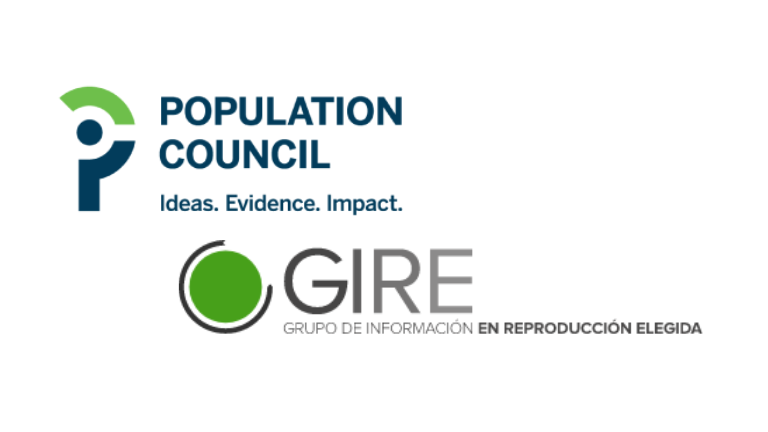
Due to the legal restrictions that deny access to abortion to women and people with the capacity for pregnancy, GIRE, a feminist human rights organization, filed the Amparo 267/2023 Supreme Court resolution to decriminalize abortion at the federal level on September 6, 2023.
The turning point came when the Supreme Court stated that total criminalization of abortion is unconstitutional. Their decision referred to the unconstitutionality action 148/2017 that decriminalized abortion in the northern border state of Coahuila in 2021.¹ The Supreme Court’s decision led to all federal health facilities’ obligation to provide abortion care. This is particularly relevant since nearly 70 percent of the population is treated in federal health institutions. This breakthrough in legal reforms, however, is not the end of the struggle: many women and people with a capacity for pregnancy may not be able to fully realize their reproductive right to access safe abortion services until both legal and non-legal barriers are adequately addressed across Mexico.
Abortion has been decriminalized at the federal level but continues to be present in the criminal codes of twenty Mexican states. Whereas, in states where abortion had been previously decriminalized,² the practice is still a crime after certain weeks of gestation, which has prevented the removal of abortion from state criminal codes. Exceptions are the state of Coahuila, where judicial resolutions ordered the complete derogation of the crime of self-induced and consensual abortion, and Guerrero, the only state that decriminalized abortion and did not impose a restriction on the number of gestation weeks for women and people with a capacity for pregnancy who decide to have an abortion.
The complexity of abortion regulations in Mexico may lead pregnant people and health providers to lack confidence in the legal framework, while hindering coordinated policy development, service delivery, and equitable access to safe abortion services. This underscores the need to harmonize the regulation of abortion to eliminate this right from the state criminal codes. Furthermore, public policies and health regulations aimed at guaranteeing access to safe, high-quality abortion services must be implemented and promoted.
On the other hand, nonlegal barriers include knowledge regarding the legality of abortion³; opinions; unfavorable public opinion on abortion; and stigma ⁴ ⁵ ⁶ ; and ensuring appropriate training and monitoring of current and future health providers. This is not only to improve knowledge about abortion as a component of reproductive health services, but also to shift attitudes and reduce the stigma and stereotypes that hinder the provision of abortion services. The inaccurate knowledge of the abortion regulation affects not only those who have unwanted pregnancies and cannot access safe and quality services, but it also affects those who are subjected to criminal proceedings for abortion, since it is often the health providers who denounce them.
The lack of publicly funded abortion services and facilities, including access to appropriate equipment and medication, particularly for pregnant people living in rural, indigenous, and/or remote areas across Mexico, adds additional nonlegal barriers for people to face. Further, pregnant people living in rural or remote areas may face additional costs, such as transportation and accommodation costs, which add to the existing burden of overcoming barriers of distance. Although telehealth may be an alternative, it may not be a complete solution to the problem of geographic barriers to abortion access, particularly to Indigenous women, who may present later, not necessarily speak Spanish, and must travel further to access abortion care. In addition, telehealth cannot be used in cases where medical abortion is unsuitable.
To turn Mexico’s Supreme Court decision to decriminalize abortion at the federal level into tangible improvements for reproductive health care among people with a capacity for pregnancy, the federal and state governments must address the above-mentioned legal and nonlegal barriers through legal commitment, financial investment, and by enabling positive political and social norm change on abortion. Moreover, it is essential that local congresses follow and heed the rulings of the Supreme Court. To decriminalize abortion in those entities where criminalization prevails without the need for judicial impulses, and taking into account that the absolute criminalization of abortion, is unconstitutional. The legislature also has in its hands that abortion ceases to be a crime throughout Mexico.
The participation of collectives, civil society organizations, and women’s rights and young feminist movements is pivotal to monitor and enhance the legitimacy, acceptability, and efficiency of the Supreme Court’s decision to guarantee women’s and pregnant people’s access to reproductive justice and rights which includes safe and high-quality abortion services. For instance, the Green Wave (Marea Verde) movement played a key role by embedding itself within Mexican legislative bodies and the judicial branch, which will hopefully lead women and people with a capacity for pregnancy to exercise their reproductive rights without the looming threat of criminalization. In any case, the recent Supreme Court ruling underscores the considerable work that lies ahead to ensure unfettered access to abortion across Mexico.
